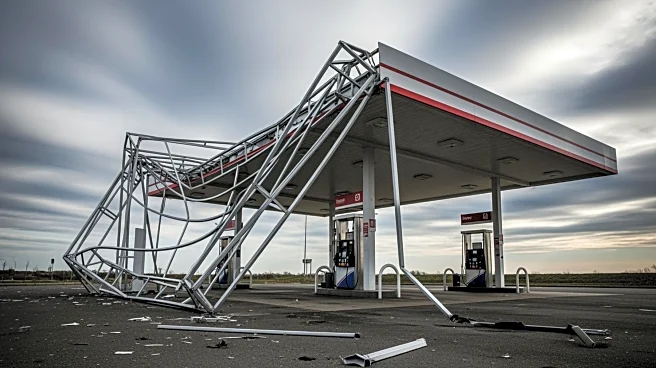What's Happening?
Linamar, a major player in the automotive manufacturing sector, reported a decline in earnings and sales for the second quarter of 2025. Despite being largely unaffected by tariffs during this period, the company expressed concerns about the potential impact of tariff-related costs on vehicle prices and demand. Executive Chair Linda Hasenfratz highlighted the risk of higher vehicle prices and reduced demand as automakers face billions in tariff-related expenses. Linamar's performance reflects broader industry challenges as companies navigate the complexities of international trade and economic pressures.
Why It's Important?
The automotive industry is a significant contributor to the U.S. economy, and fluctuations in this sector can have widespread implications. Linamar's concerns about tariffs underscore the potential for increased costs that could be passed on to consumers, affecting vehicle affordability and sales. This situation could lead to shifts in consumer behavior, impacting automakers and suppliers alike. Additionally, the broader economic implications of tariffs could influence trade policies and negotiations, affecting various industries reliant on international supply chains.
What's Next?
As the automotive industry continues to grapple with tariff-related challenges, companies like Linamar may need to explore strategies to mitigate potential impacts on pricing and demand. This could involve seeking efficiencies in production, negotiating with suppliers, or advocating for policy changes. Stakeholders, including industry leaders and policymakers, will likely monitor developments closely to assess the long-term effects on the sector and the economy.
Beyond the Headlines
The tariff situation raises questions about the sustainability of current trade practices and the need for adaptive strategies in the face of global economic shifts. Companies may need to consider diversifying their supply chains or investing in innovation to remain competitive. The evolving trade landscape could also prompt discussions on the balance between protectionism and free trade, influencing future policy directions.









